#Neo-paganism
Explore tagged Tumblr posts
Text
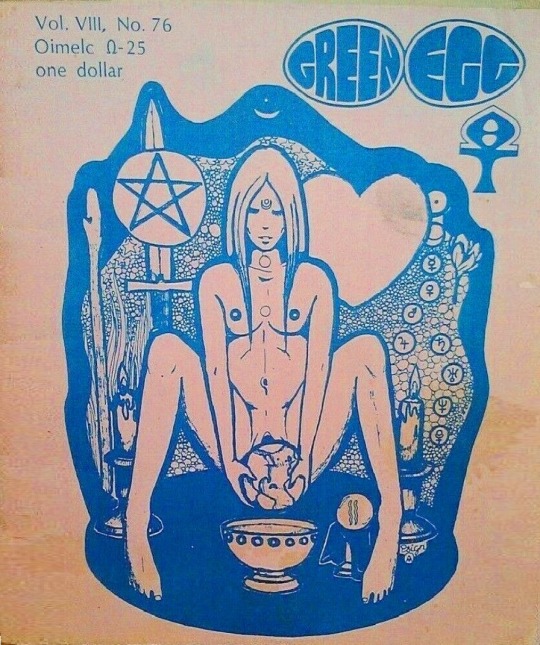
Green Egg, magazine, Vol. VIII, No. 76, Oimelc, 1976
#witches#ancient gods#occult#vintage#green egg#magazine#vol. VIII no. 76#neo-paganism#gaia#earth#magic#february#1976#oimelc
221 notes
·
View notes
Text
The problem with neo-paganism for me is that they are not living traditions. People want to connect with their ancestors and the spirituality of their ancestors, but the problem is, they've never met their ancestors. They were not raised by their ancestors. They do not share a world view with their ancestors. And, their ancestors did not choose to write things down. You can say they didn't have the technology, or, you could also say, they didn't need to. They didn't need to because they were part of a living oral tradition. And, our later ancestors changed and sometimes deleted those traditions.
Inevitably, even if it comes from a place of good intent, neo-paganism is recreationism, like experimental archaeology, and recreationism has a blurry line between itself and recreation, in the sense of a leisure activity, akin to live action role playing.
Neo-pagans tend to see this as an insult, I guess, I mean I was banned from r/pagan by anonymous mods, but they really shouldn't. It is simply an analysis. I suppose there is nothing controversial about this analysis to me, because I have always seen all religions as made up. The difference is, with a living tradition, you have something made by layers and layers of generations, each of whom have added, subtracted, and changed the tradition in the course of their lives, and in enculturating the next generations. Living traditions are aged. They are rich, complex, and internally contradictory.
Neo-pagans on the other hand learn about pagan beliefs from communities of people who have created a new thing from books they've read, Wikipedia, reddit, or world-built out of whole cloth. This whole thing grew out of Victorian era recreationism, which grew out of the 18th century Romantic movement.
If you are going to practice neo-paganism, know your true roots, at least.
#pagan#paganism#neo-pagan#neo-paganism#larp#larping#experimental archaeology#religion#heathen#heathenism
6 notes
·
View notes
Text
Wicca and "Cultural appropriation"
I am sick of other Neo Pagan sects deciding that Wicca is "cultural appropriation" and "problematic." Tonight someone tried to scold me and tell me that I should not say that Wiccans celebrate Yule (it was actually a post with a list of Neo-Pagan faiths that have a version of Yule) because they "appropriated" it from Scandinavian religions that had it first and Wicca was "only created in the 1950s." Okay, let me break a few things down here. 1. Yes, it's easy to say Wicca is "new" because it wasn't an official religion in the UK until the 1950s but let's consider an important point. Until the 1950s Witchcraft was still illegal in the UK. No religion was allowed to be officially recognized that practiced witchcraft until then. America didn't even acknowledge Wicca as a religion option for military personnel until 2007. Scooby Doo acknowledged Wicca as a religion before The American government. The actual word Wicca Is Old English for Witch (masculine spelling). The feminine spelling was Wicce. They were pronounced as Witch-ah and Witch-uh. There was a very slight difference for gender specification. Eventually middle and modern English would drop the a and e at the end and settle on "witch" as an (intended) gender neutral term. Like the word Wizard (which came from Wizened) the word Witch meant (Someone who had their wits about them. Until the early middle ages the word meant "Wise person." And that's how Wiccans use the term now. 2. It's become fashionable to pearl clutch and say all cultures should stay separate and not borrow from each other because it's "cultural appropriation." Some "helpful" people even DMed me Youtube videos about why Wicca is a "Problematic" element in Pagan communities solely because it borrows from multiple religions. But literally every religion does it if you look at it long enough. So does Christianity, and Judaism, and Islam. And even Hermeticism which is part Greek, part Egyptian. Merging the two together. (And a LOT of Neo-Paganism is Hermetic) How come all of those can do it but when Wicca does it, that's the one called out where people are shamed? The people practicing "Real Paganism" forget the "Neo" part. That means "new." It's cobbled together from things that were suppressed and often lost to history. Even the Nordic Eddas are incomplete and were first written down by Christian Monks who altered things to (among other things) make Loki more of a Satan figure than he actually was. Almost all Neo Paganism uses hermeticism. Do you know what that is? It's from an era in Greek history where the Greek God Hermes was merged with the Egyptian God Toth. The two were merged into a single being and that's where a lot of Neo Paganism comes from. The teachings from that period where there was Greek / Egyptian appropriation. The Roman Gods evolved from the Greek Gods. Even when we discuss the beliefs of the First Nations there are overlaps because one Nation borrowed from another and beliefs spread. Modern Voodoo is a mixture of West African, Catholic, and Hattian folk beliefs. Mexican Catholicism is very different from French Catholicism. Imagine The Day of the Dead and Saint Death in Paris. When you believe something, truly believe it, you don't covet it as something only certain people are allowed to believe in. If you think of it as truth - as fact, you want others to believe it too. This is not cultural appropriation. This is cultural appreciation. 3. If you think Wiccans shouldn't be allowed to call their winter holiday Yule, you are essentially saying it's okay to call Christmas by Yule and the Christmas season Yuletide. And Christians can even burn Yule Logs but you'll Pearl clutch "How dare Wiccans call their festival the name of the millennia old Scandinavian festival!" Because Wicca = Bad? Christian = Well, they did that a long time ago and Wicca's new-ish despite being a re-adaption of a lot ancient practices.
Yes, Wicca is a hodgepodge religion of many beliefs cobbled together. So are most religions when you break them down. None are truly safe from "contamination" from other religions. This separate yet equal / segregation and "Wicca's bad because it appropriates" needs to stop. Aren't there enough prejudices that ALL Neo-Pagan faiths need to worry about? We don't need this "in-fighting".
30 notes
·
View notes
Text
Hungary, not hungry
the Traditionalist School of esotericism on Hungarian–Uralic neopaganism and Jobbik (Gábor Vona, Gergely Pongrátz, Dávid Kovács, et al.) 🇭🇺 🇫🇮 🇪🇪 🇷🇺 🇳🇴 🇸🇪 🫎🥨🌉🍲📊🏪🍻🌡️💂☕🧣🧺🧸🐻🗿
http://tendency.dmr.institute/
0 notes
Text
As anyone who has read my poetry and stories knows, I am into fairylore. This is my last blog (so far) on Charlotte Bronte's novel Shirley, exploring all of the references to fairies and their role in the story. It uses my familiarity with old Neo-Pagan faerylore and my studies of 19th century British fairylore as sourcing for the analysis.
0 notes
Text
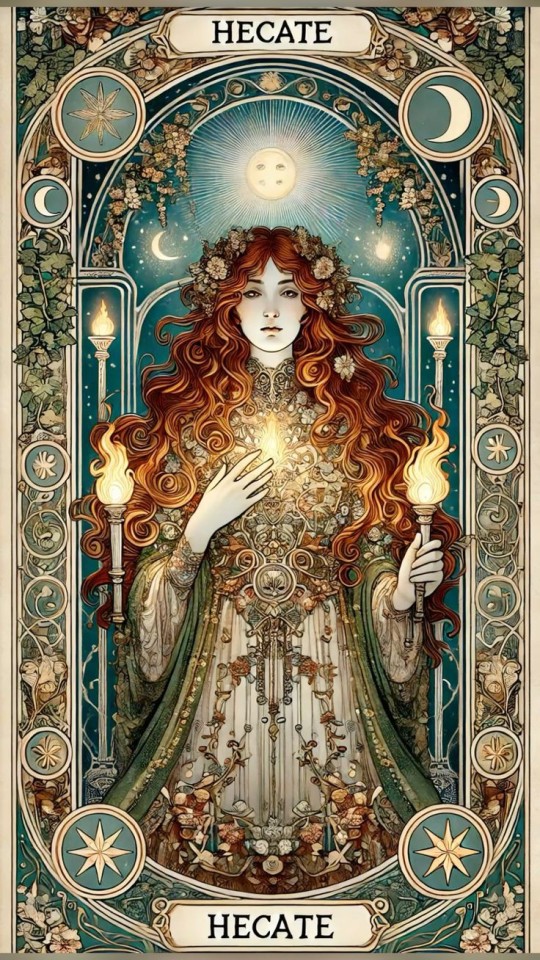
Hekáte, Mother of Witches,
Bring fortune and joy to your followers,
Hold us close to Your cloak,
Accept our offerings of garlic and wine,
Accept our devotion of You - dear Goddess of All.
#hecate#pagan#devotion#goddess#heal me#healing#gratitude#thankful#paganblr#witchblr#ækátî#ekáth#hekáte#hekate#wish#witches#wishes#witch#witchcraft#pagan witch#neo pagan#neo paganism#paganism
714 notes
·
View notes
Text
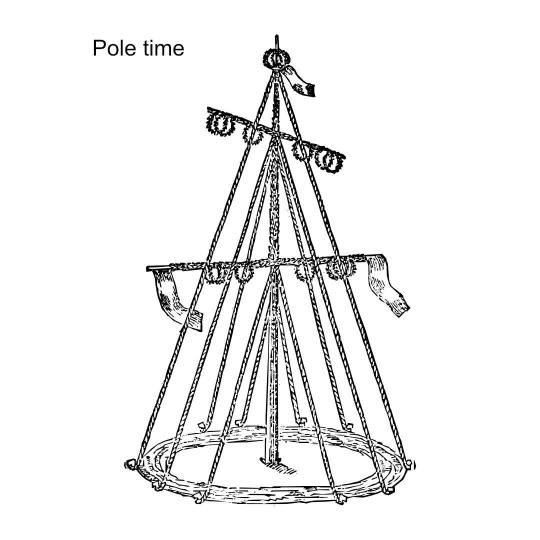
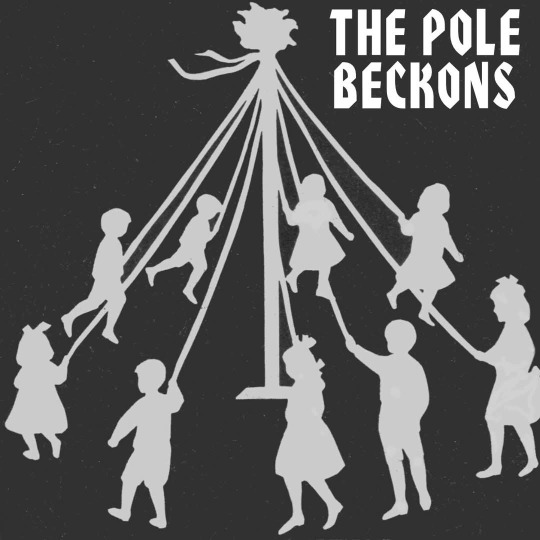
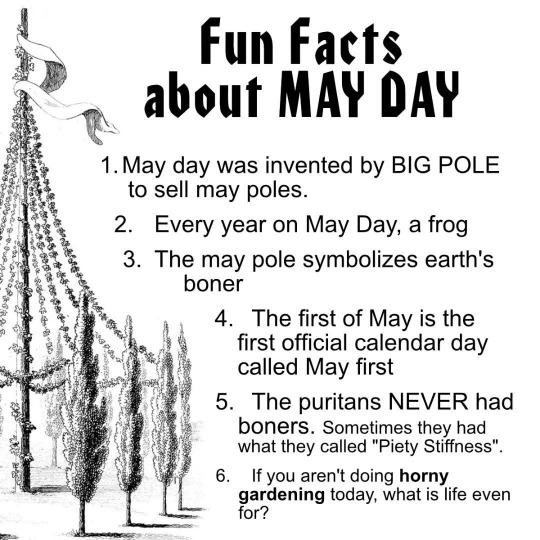
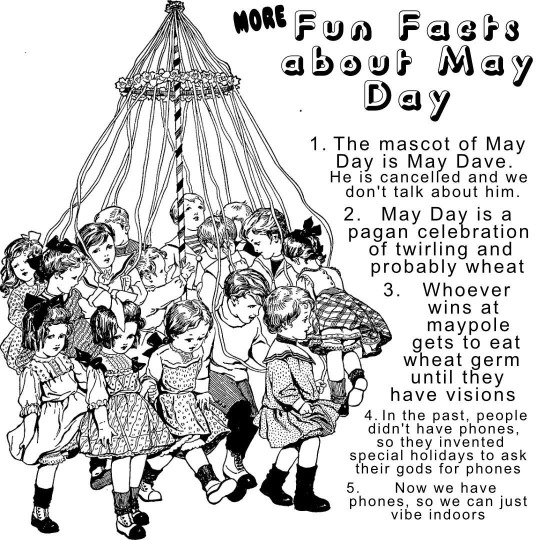
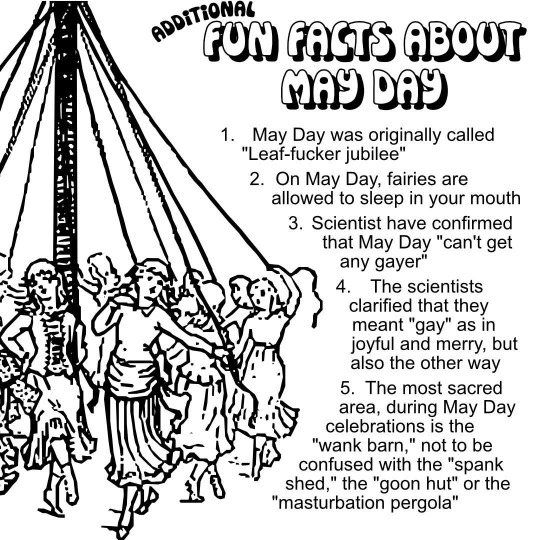

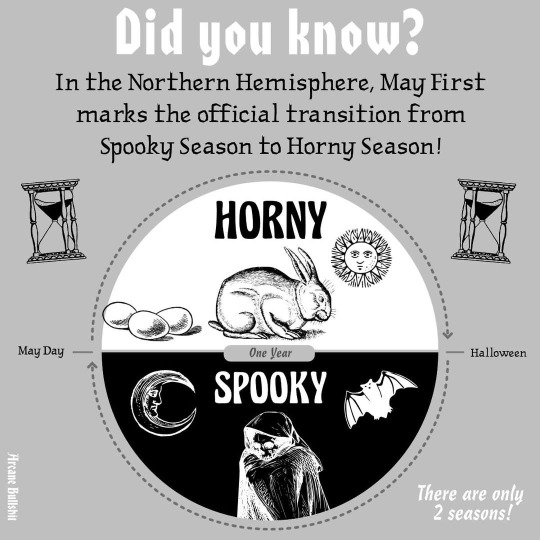

#arcane bullshit#occultism#paganism#neo paganism#beltaine#sumer is icumen in#may day#beltane#leaf-fucker jubilee#piety stiffness#christopher lee#the wicker man
317 notes
·
View notes
Text
Happy Earth Day Witches 🌿🌼🌷🍃🌍

Don’t forget to honor the Earth. Go for walks in nature, look around, and appreciate eveything we are blessed to see. Touch the ground, walk barefoot if you can. Hug the trees. Water your plants. Plant your seeds. Leave some seeds out for the birds too. Leave offerings to the Earth, maybe, water, or just your time. Sit on the ground and meditate. Let yourself connect to the elements. Appreciate the small things and take a moment to just be still with the Earth. 🪻🍀🪱
#earth day#happy earth day#paganism#hellenic pagan#witch#witchcraft#witchblr#pagan#pagan witch#neo paganism#pagans#witchy#witches#wicca#witch community#witchcore#occult#eclectic witch#baby witch#witches of tumblr
220 notes
·
View notes
Text

crystal magic basics 💎
a quick guide for using and caring for your crystal
— cleanse l it's important to cleanse your crystal of negative or stale energies before and after you carry it for an extended period of time or use it in your practice.
methods of crystal cleansing
— water cleansing | mix sea salt and clear water from a natural source — such as spring water or rain water. submerge your crystals and let them sit overnight. (don't use this method with crystals that are water soluble)
— smoke cleansing I pass your crystal through incense or herb smoke of your choice
— fire cleansing | quickly pass your crystal through the flame of a lit candle or match (safely and carefully! not all crystals are safe to pass through fire, so please do your research)
— salt cleansing | cover your crystals completely in sea salt and allow them to sit overnight before uncovering them
— earth cleansing | like salt cleansing, bury your crystals in dirt or soil and allow them to sit overnight before uncovering them
— program I after cleansing, you can program your crystal with your desired intention so long as it aligns with the properties of the crystal itself
methods of crystal programming
— visualize | hold your crystal in the hand that feels most comfortable, and imagine a soft light filling your crystal while you focus on your intention. rest when you feel you've activated the crystal
— communicate | while holding your crystal, have a conversation with it. this can be out loud or in your head. be sure to make your intentions clear and show gratitude when you feel your crystal has been activated
— familiarize | carry your crystal with you for a few days or weeks while you focus on your intent. eventually the crystal will activate by picking up your intentions
— charge | lastly, after you've programmed your intent into the crystal, choose a suitable method of charging it with energy
methods of crystal charging
— sunlight | put your crystals outside or on your windowsill in sunlight for the day. (this may cause color fading in certain crystals)
— moonlight | put your crystals outside or on your windowsill overnight in moonlight (pretty much exactly like sunlight but without the possibility of crystal color fading)
— your energy I hold your crystal in your hand and focus your energy into it, allowing it to charge
when you’re finished using your crystals, be sure to store them in a cleansed, sacred, and safe space.
and that’s it! you now have access to magic rocks. enjoy!
#witch#witchblr#witchcraft#pagan witch#witch aesthetic#witch community#witches#baby witch#crystals#crystal magic#crystal magick#crystal witch#crystal witchcraft#crystal spell#cottage witch#hellenic pagan#norse pagan#celtic pagan#eclectic pagan#neo pagan#neo paganism#crystal cleansing#crystal charging#crystal healing
356 notes
·
View notes
Text
🚩🚩"Witch/Pagan" community PSA 🚩🚩
Goêteia is not evil, you dipshits.
I'm so sick of these neo-pagans getting all their information from Tumblr, Pinterest and TikTok.
Goêteia is literally just the Greek term for magic, for sorcery, which were one and the same.
Ancient Greece didn't have the word "witchcraft" it had Goêteia, and then later mageia, where we get our modern term magic from, although mageia was a misappropriated term from Zoroastrian priests or Magi.
It's so funny seeing baby witches claim Goêteia to be evil on one hand, then on the other worshipping Hekate, literally the goddess of Goêteia. The goddess of sorcerers and necromancy.
It screams puritanical morality policing. It's such a christian-centered way of looking at ancient religion.
Y'all need to open a damn book.
Goêteia was described as a "lesser" form of magic (mainly in the later Medieval period, roughly starting around the 8th century,) not meaning any less powerful, just simply the easiest or "closest" thus "lower" magic to achieve. This ability to more easily achieve success in magic was later taken and used by christian theologians to paint goêteia and Goêtes as "lesser practitioners."
There does seem to be little difference between Theurgy and goêteia as well,
Surprise!
Both Goêteia and Theurgy sharing the same goddamn workings through evocations of gods, the animation of statues, mediumship or what could be considered "divine possession" having a god or spirit speak through you, the use of iynx wheels / iynges, and mystery rites.
The only 'real' difference Theurgists claim, is that they "don't practice secularly/for selfish reasons" but supposedly rather to become closer to the divine. It's a nice sentiment, but total bullshit, because even in the Theurgic doctrine the Chaldean Oracles they bind the goddess Hekate to do their will.
Additionally, Theurgists had a more Neoplatonic belief, they essentially viewed a singular Oneness as supreme, the emanation from which all things return, a concept which was picked up by early christian theologians and is likely why while Goêtes were demonized in the later centuries mainly by early christians and christian philosophers, Theurgists on the other hand were seen as "pure" and "holier" despite Theurgical and Goêteic practices being pretty much exactly the same down to the tools and incantations.
(Agustine of Hippo for an example of these theologians, who wrote in "De civitate Dei contra Paganos", or "On the City of God Against the Pagans" how all "pagan" (non christian) gods and beliefs were secretly agents of Satan and evil, here to trick humanity into sin and that paganism, essentially any non christian faith, must be stopped–
He also wrote about how sorcerers/magicians (Goêtes) were charlatans, tricksters, that magic and sorcery were merely tricks of an invisible opposition to the divine and how only god could hold such supreme power. These ideas still seem to be deeply embedded into christian faith, particularly Orthodox and Evangelical, today.)
Practitioners of goêteia, the Goēs, was also understood to have the ability to initiate souls into mystery religions, or, in other words, to ensure through his superior knowledge of the Underworld and its workings that the souls under his care would receive preferential treatment after death, an easier way to paradise, such as the Orphic Hymns.
This likely also helped "other" the Goēs, as most practitioners of magic, of goêteia, of these mystery cults were made up of societies "unwanted" or marginalized people, such as women, foreigners, immigrants, the poor, the disabled, and the elderly. Early goêtes were described as being Thessalian (primarily women, particularly described as "old or decrepid") or. ethnically, not considered "fully Greek" to many of the era. Many critiques and fears of goêteia come from this "otherness," the fear the ruling classes of Greece had of groups they continued to harm, they feared the power they held within these mystery rites and practices.
With reliable accuracy from these critics, goêtes were (perceived to be) moral transgressors, who operated from the fringe of society in a private mago-mystical setting, offering their service for coin.
Or, in simpler terms, the Greeks were just really fucking racist
which is nothing new.
In fact, because goêteia itself is a synchronization of mainly Egyptian and Jewish magic, the Greeks and later christians went extra-hard into villifying it because they saw these people as lesser, as barbaric.
We have to understand where the fears and judgements of these critics were coming from, and continue to remain impartial. The ruling elite feared these practices because they feared losing their power, especially rich Greek men, and those early christian philosophers who saw everything outside their own faith as lies, manipulations, or tricks from "the Opposition" as well as the extremely racist and ethnocentric beliefs they held.
#paganism#polytheism#reconstructionist#hellenic polytheism#hellenic pagan#hellenism#hot take#rant#goêteia#Hekate#Hecate#hekatean witch#witch community#witchblr#witchcraft#ancient history#theurgy#chaldean oracles#psa#ancient greece#new age#deconstructing christianity#neo paganism
490 notes
·
View notes
Text
You are not born a witch, you become one.
I’ve been seeing a reemergence of the narrative that everyone is “a witch deep down” or “there’s witchcraft in all of us” this just isn’t the case and never has been. While the opportunity is available to everyone…
Not everyone will or should take it.
Witch-fire is not passed down in the blood.
It is not a gift that lies dormant in every soul, waiting to be stirred.
Folklore and history, the ways recorded in stories and confessions, say otherwise:
The powers of the witch are not innate.
They are taken, offered, or bought.
And the price is always high.
Sometimes you are tempted,
sometimes you are desperate,
and sometimes you are simply lured to say yes.
Catherine Remy of Belgium in 1603, said the Devil came to her when she was in need. He offered her power, not with force, but a touch to the forehead and chest, freely accepted. After that, she could heal, curse, and know things no ordinary person should.
(Van Haverbeke, Les procès de sorcellerie à Tournai, 1895)
In 1579, Jeanne Harvilliers of France said a dark figure came to her at night and gave her oil and powder. She rubbed it on herself and flew through the air, transformed, and brought harm to those who wronged her. She said she served him in exchange for those powers.
(Jean Bodin, De la démonomanie des sorciers, 1580)
William Barton of Scotland, said he met a woman in the woods who gave him a new name and scratched a mark into his skin. after that, he could see what others could not. he renounced his baptism and gave her his soul.
(Pitcairn, Criminal Trials in Scotland, vol. 3)
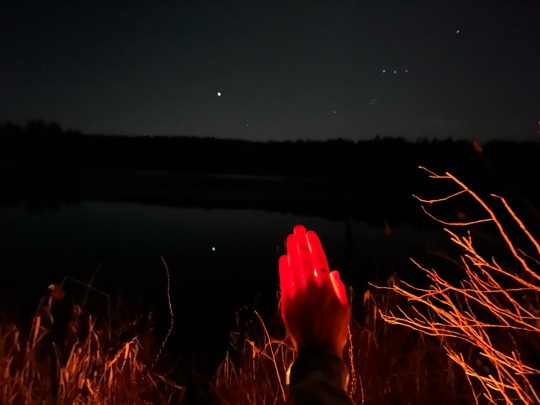
This is the witch-fire.
The black flame.
The crooked gift.
It is not within you by birth, though there are those who are oil-blooded, born to burn.
The ones that are called to this dark art and are sought after by the witching spirits, those who can smell the petroleum flowing within.
But for the fire, you go out to find it.
You trade for it.
You are engulfed by it.
And the cost?
Your name, your soul. Your place in the world as it was.
This is one of the reasons why the witches of the past were feared, because this path didn’t happen to them, they chose it. They had given themselves over to the spirits, to the night, to the woods. They weren’t forced to do it, they made a conscious decision to accept it.
You aren’t born a witch.
You become one, when you say yes to the fire
and leave the rest of yourself behind, in ashes.
#folk witchcraft#traditional witchcraft#witchcraft#traditional witches#folk witch#folk witches#witch#trad witch#folklore#witch history#witch blood#witch fire#initiation#neo paganism#pagan#wicca#neopagan bs#going to try to stick to less talked#about topics but wanted to give#my own opinion on the subject
86 notes
·
View notes
Text
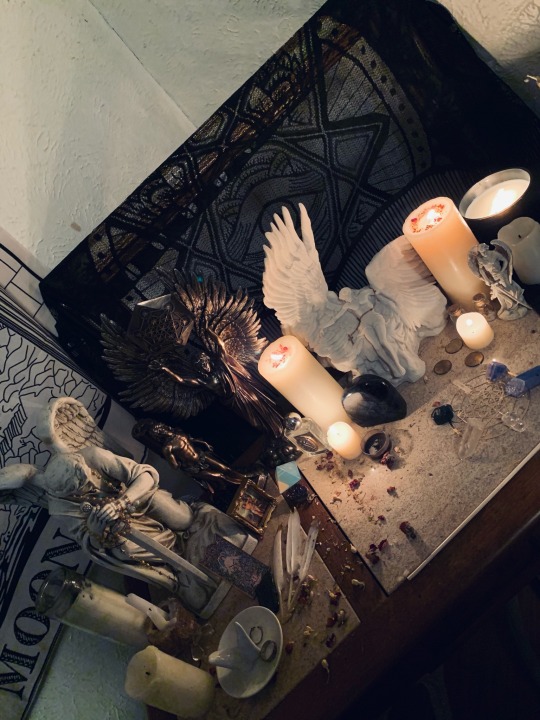
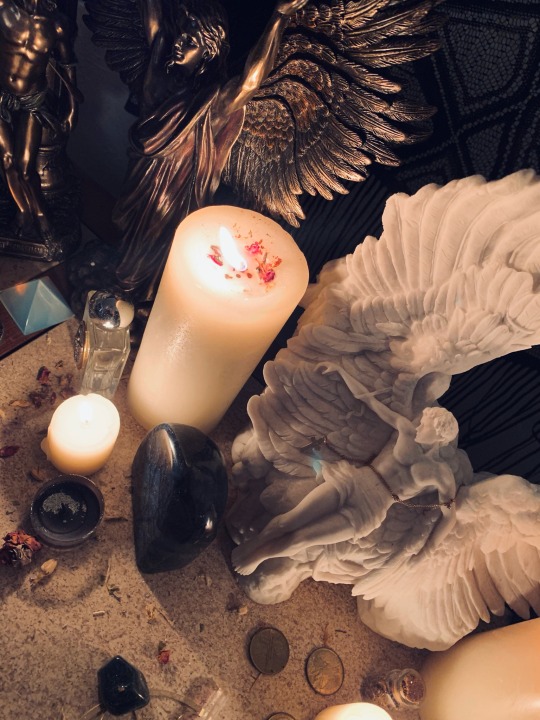
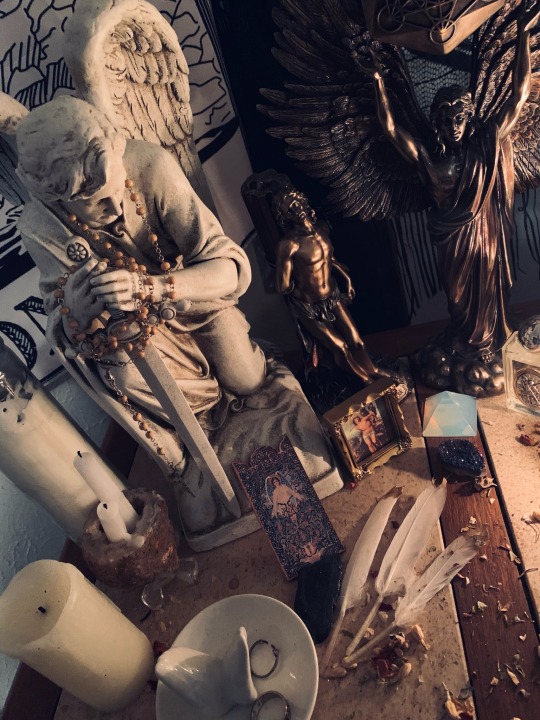
altar
#judas growls#otherkin#alterhuman#divinekin#angelkin#fallen angelkin#demonkin#neo paganism#altar#alterhumanity
79 notes
·
View notes
Text
You know, one of the things that's the most disappointing when breaking into paganism is the lack of spiritual music. Due to the erasure of European pagan religious groups during the expansion of Christianity, at most we might have a poem that got preserved but the notes and instrumental of the music are lost. I used to adore singing hymns when I was Catholic (Evangelical worship music is usually bad rock and Mormon hymns sound like a bunch of people on lithium humming yankee doodle). I feel that music is such an important part of spirituality that is mostly absent in neo-paganism. I want Psalms praising Persephone, bardic verses beseeching Thor, yuletide carols and other holiday music. *sighs* Maybe we can make our own, if you know of any that have been published please let me know!
#pagans of tumblr#druid#grove#namelessgoddess#neo paganism#paganism#pagan#wiccan#witchcraft#witchblr#hellenic worship#hellenic polytheism#hellenic pagan#hellenism
78 notes
·
View notes
Text
if i see ONE more goy talk about Lilith like you motherfuckers know anything about her im sending you to the jewlag (jewish gulag) (not gulag for jews those have already been done several times) (gulag where people who act like our legends and mystic traditions are up for grabs as if we are not a CLOSED RELIGION with CLOSED TRADITIONS) (basically every single non-jew who acts like they can claim Lilith as their goddess or whatever is culturally christian and has made no efforts to dismantle said cultural christianity in their current spiritual practices which is almost worse than the goyim who outright appropriate our traditions)
#neo-pagans and wiccans PLEASE learn to do research on where your spiritual practices come from!!#Lilith is not a fun edgy goddess she is an irrevocably jewish figure who was appropriated by christians and who nonjews cannot reclaim#she isn't even a goddess for the record#my poests#jumblr#jewblr#jewish#lilith#judaism#jewish folklore#kabbalah#jewish mysticism
57 notes
·
View notes
Text
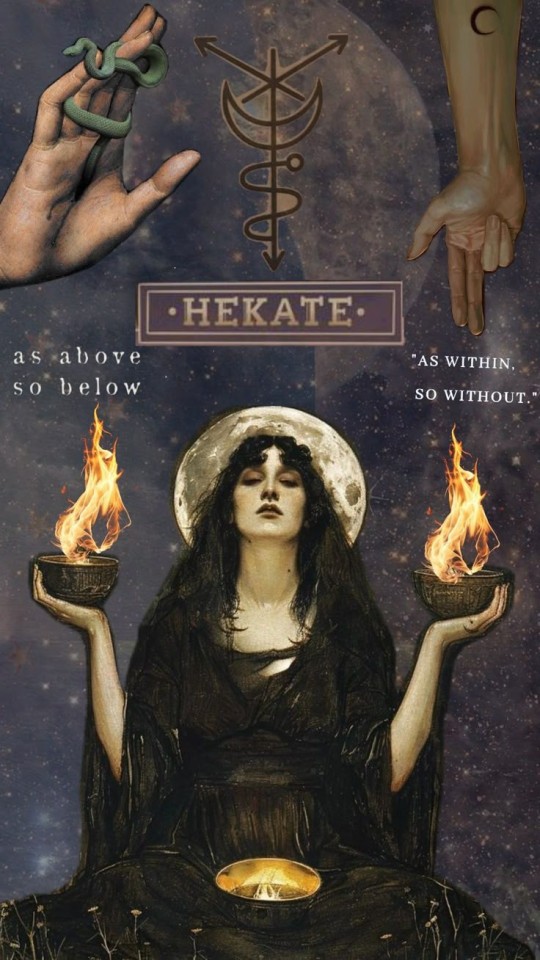
Queen of Cosmos,
Lady of the Liminal,
Hear how we devote ourselves!
Mother of Witches,
Goddess of the Underworld,
See how we devote ourselves!
Hekáte, the All, Key bearer and Gate keeper,
We devote ourselves and rejoice in You!
#hecate#pagan#devotion#goddess#heal me#healing#gratitude#thankful#paganblr#witchblr#hekáte#hekate#of many names#neo pagan#neo paganism#paganism#pagan witch#ækátî#ekáth#witch#wish#witches#wishes#witchcraft
447 notes
·
View notes